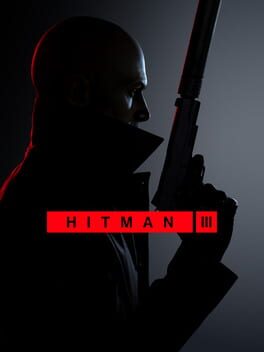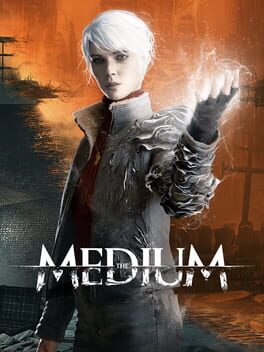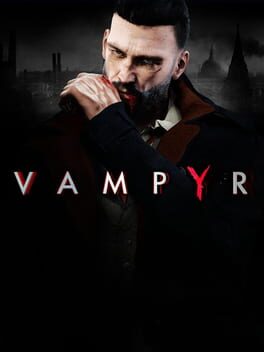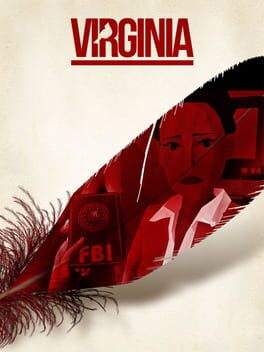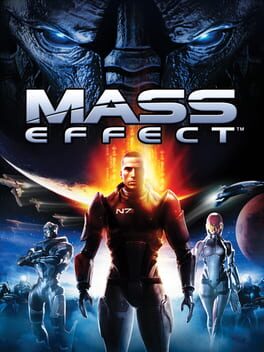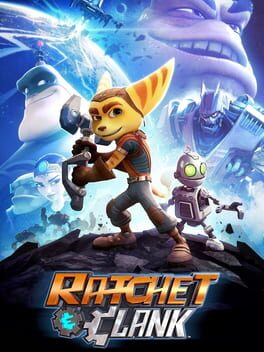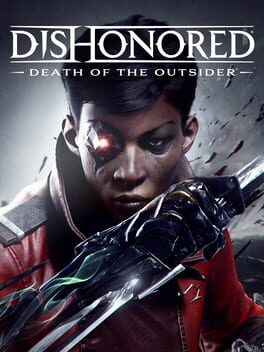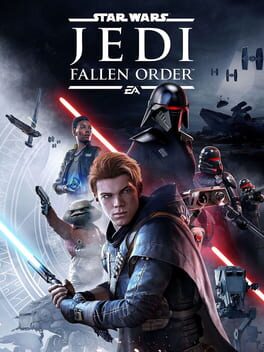ImmortanJones
2021
"It's good to be back."
Agent 47's journey continues in Hitman 3 the latest title in IO Interactive's illustrious stealth-action franchise. Following the events of Hitman 2, 47 joins former antagonist Lucas Grey in the hunt for the last remaining members of Providence, the elusive shadow organization that's plagued the agents of the ICA for the past few games. If you've played either of IO's recent Hitman titles, Hitman 3 will be like stepping back into the comfortable shoes of 47, as the gameplay, level design, and replayability are all comparable to its predecessors. With some new improvements to movement, better graphical fidelity, and IO's commitment to making this game an all-in-one package, Hitman 3 shines as the conclusion to 47's five-year journey through multiple publishers, and his even longer journey to widespread acclaim.
Narratively, Hitman 3 isn't anything to write home about. IO have attempted to weave an emotional core through their new trilogy to less than promising results; 47 isn't a character with goals or interesting motivations, he's a vessel for the player to experiment in the expertly designed sandboxes of each level. The conclusion to this story is as middling as the previous two titles' setup. The Constant is not as charismatic or threatening as IO makes him out to be, the conflict between 47 and the ICA has no impact whatsoever, and Diana Burnwood is - as always - a poor woman's M. Nevertheless, Hitman 3 persists, because a narrative isn't why these games are successful (though having a decent one would be a plus). No, the narrative merely provides context for the systems-driven, comically-infused stealth gameplay that has defined this series since the early 2000s.
Hitman 3's gameplay is the most refined of the new trilogy, giving 47 more fluidity of movement and access to more tools and gag items than ever before. It's not Metal Gear Solid levels of smoothness, but the sheer volume of interactivity with and problem-solving within the world is astronomical. Hitman 3 goes out of its way to throw the player in complex worlds with increasingly difficult directives. At first, the game treats missions like Hitman or Hitman 2, giving the player defined targets with dramatically ironic "story" assassinations tied to their deaths, but as The Constant chips away at 47's resources, the missions become less defined with more room for error and increasingly slippery targets. Hitman 3 doesn't exactly stick the landing in this regard, as the final level is a very linear kill order with little variety, but because of the trilogy's progression system and unlock tree, going back to the well of previous missions is not out of the question for any prospective player who feels the need to master the greater challenges that the game has to offer.
Personally, Hitman 2 was the peak of this soft-rebooted series, the locales and mission structures were dynamic with fun twists for each assassination (if played right). Hitman 3 stumbles here and there conceptually and narratively, but is still a worthy successor to the previous entries. And if - like me - you much prefer the last title, Hitman 3 comes packaged with Hitman and Hitman 2 provided you already own them, making Hitman 3 a hub for the definitive world of assassination. The next time I review this game will be for the PSVR run of all three games. In the meantime, happy hunting, agents.
3.5 out of 5.
Interesting to see IO reuse cutscenes from Hitman: Contracts for this one.
Agent 47's journey continues in Hitman 3 the latest title in IO Interactive's illustrious stealth-action franchise. Following the events of Hitman 2, 47 joins former antagonist Lucas Grey in the hunt for the last remaining members of Providence, the elusive shadow organization that's plagued the agents of the ICA for the past few games. If you've played either of IO's recent Hitman titles, Hitman 3 will be like stepping back into the comfortable shoes of 47, as the gameplay, level design, and replayability are all comparable to its predecessors. With some new improvements to movement, better graphical fidelity, and IO's commitment to making this game an all-in-one package, Hitman 3 shines as the conclusion to 47's five-year journey through multiple publishers, and his even longer journey to widespread acclaim.
Narratively, Hitman 3 isn't anything to write home about. IO have attempted to weave an emotional core through their new trilogy to less than promising results; 47 isn't a character with goals or interesting motivations, he's a vessel for the player to experiment in the expertly designed sandboxes of each level. The conclusion to this story is as middling as the previous two titles' setup. The Constant is not as charismatic or threatening as IO makes him out to be, the conflict between 47 and the ICA has no impact whatsoever, and Diana Burnwood is - as always - a poor woman's M. Nevertheless, Hitman 3 persists, because a narrative isn't why these games are successful (though having a decent one would be a plus). No, the narrative merely provides context for the systems-driven, comically-infused stealth gameplay that has defined this series since the early 2000s.
Hitman 3's gameplay is the most refined of the new trilogy, giving 47 more fluidity of movement and access to more tools and gag items than ever before. It's not Metal Gear Solid levels of smoothness, but the sheer volume of interactivity with and problem-solving within the world is astronomical. Hitman 3 goes out of its way to throw the player in complex worlds with increasingly difficult directives. At first, the game treats missions like Hitman or Hitman 2, giving the player defined targets with dramatically ironic "story" assassinations tied to their deaths, but as The Constant chips away at 47's resources, the missions become less defined with more room for error and increasingly slippery targets. Hitman 3 doesn't exactly stick the landing in this regard, as the final level is a very linear kill order with little variety, but because of the trilogy's progression system and unlock tree, going back to the well of previous missions is not out of the question for any prospective player who feels the need to master the greater challenges that the game has to offer.
Personally, Hitman 2 was the peak of this soft-rebooted series, the locales and mission structures were dynamic with fun twists for each assassination (if played right). Hitman 3 stumbles here and there conceptually and narratively, but is still a worthy successor to the previous entries. And if - like me - you much prefer the last title, Hitman 3 comes packaged with Hitman and Hitman 2 provided you already own them, making Hitman 3 a hub for the definitive world of assassination. The next time I review this game will be for the PSVR run of all three games. In the meantime, happy hunting, agents.
3.5 out of 5.
Interesting to see IO reuse cutscenes from Hitman: Contracts for this one.
2019
This review contains spoilers
"To be Bowman, flying into the monolith, ready to see... to understand."
Control is as brilliant as it is obtuse, a Jungian action-horror adventure set in the extra-dimensional Oldest House, home to the Federal Bureau of Control, a secret division of the US government tasked with containing and studying paranatural items found throughout history. The player takes on the role of Jesse Faden, the Bureau's new director. On her first day as head of this alien organization, Faden is tasked with halting a world-ending threat plaguing the Oldest House and its residents, mixing third-person gunfights with telekinetic melee in a spectacle of particle physics and environmental destruction that probably had the folks at EA DICE creaming their jeans.
For as much as I could wax poetic about the visual splendor and immaculate art direction in Control, I feel as though letting the weaker elements of the game - mainly progression and the narrative - off the hook would do a disservice to my reputation as someone who constantly complains about things that, in the grand scheme of all, don't matter too much but will definitely piss off the wrong people. So, yeah: progression in Control is a bungled hackjob. Remedy's idea of a skill tree is stat boosts that turn the game into a lopsided power fantasy, making the once thrilling combat combos of "shoot this, launch a chair at that" a rhythm game where the player needs to time their reload with their stamina regen. And this is all without mentioning how utterly useless most of the secondary abilities and weapon mods are as you invariably max out Jesse's ability to dome a dude with a brick at Mach 10. There was very little incentive to switch weapon types over the course of that game as most are ineffectual in close to long range combat. Compounding that frustration is that fact that Jesse's Service Weapon (as cool as it is) can only slot two weapon types at a time, making hotswapping to various mods an impossibility during combat. At the end of the day, however, the act of launching office supplies at nameless goons will never get old, so Remedy can skirt by on having one cool feature that saves this game's combat from utter dismalness.
Narratively, Control doesn't fare any better. The basic plot of Jesse working her way through the shifting halls of the Oldest House in search of a way to stop the extra-dimensional threat within leads to the game's more "gamey" aspects ala Metroidvania-style backtracking and skill acquisitions, but the meta-narrative of the collective unconscious and other Jungian concepts leaking into a game about a girl searching for purpose falls flat as Jesse is less so a well-rounded, believable character, and more of a ride-along for the player that just so happens to be related to one of the antagonists. Or THE antagonist, I guess. Most of the important players in the story of Control are either dead or missing by the start of the game, so it's up to the player to come to their own conclusions as to how things are the way they are by rifling through the hundreds of supplementary text-based side stories that litter the halls of the Oldest House. Many of them are written in the style of the SCP Foundation, so it's clear Sam Lake has been spending a bit of time surfing the web since Quantum Break shit itself on release. The only saving grace in this regard is Matthew Poretta's portrayal of Dr. Caspar Darling, the Bureau's (former) Head of Research. Darling provides context and goofy asides in the form of pre-recorded presentations that Jesse runs across in her time at the Oldest House, and is one of the few genuinely interesting characters in the whole of the game. Aside from Darling's inclusion, the rest of my critique stands: Control has a lifeless narrative and an even more lifeless characters. It doesn't help that Jesse's internal monologue is reiterative of literally everything the player can see and gather through context or by, oh, I dunno - playing the goddamn game.
Initially, I had planned this to be a review that covered the expansions in this game as well as the core narrative, but my problems with the base game still remain, despite how excited I am at the prospect of an Alan Wake sequel that was teased at the end of the second DLC. You can tease me all you want Sam Lake, I'll believe it when I see it. (And that's another problem, too, the AWE expansion did very little aside from say, "Hey, maybe, maybe, Alan Wake-y, too?") Control is a mixed bag, as some cool cats would say, but more than that, I think it's uneven. Its concepts, art direction, and level design are robust and constantly jaw-dropping. Again, these visuals are just... I don't know, pick a word out of a hat that's synonymous with exasperated admiration - they're phenomenal. But execution is just as important to me as intention, and I don't think Control sticks the landing where it needs to.
3 out of 5.
"I'm the Director of the Federal Bureau of Control and you've gotta deal with it!"
Control is as brilliant as it is obtuse, a Jungian action-horror adventure set in the extra-dimensional Oldest House, home to the Federal Bureau of Control, a secret division of the US government tasked with containing and studying paranatural items found throughout history. The player takes on the role of Jesse Faden, the Bureau's new director. On her first day as head of this alien organization, Faden is tasked with halting a world-ending threat plaguing the Oldest House and its residents, mixing third-person gunfights with telekinetic melee in a spectacle of particle physics and environmental destruction that probably had the folks at EA DICE creaming their jeans.
For as much as I could wax poetic about the visual splendor and immaculate art direction in Control, I feel as though letting the weaker elements of the game - mainly progression and the narrative - off the hook would do a disservice to my reputation as someone who constantly complains about things that, in the grand scheme of all, don't matter too much but will definitely piss off the wrong people. So, yeah: progression in Control is a bungled hackjob. Remedy's idea of a skill tree is stat boosts that turn the game into a lopsided power fantasy, making the once thrilling combat combos of "shoot this, launch a chair at that" a rhythm game where the player needs to time their reload with their stamina regen. And this is all without mentioning how utterly useless most of the secondary abilities and weapon mods are as you invariably max out Jesse's ability to dome a dude with a brick at Mach 10. There was very little incentive to switch weapon types over the course of that game as most are ineffectual in close to long range combat. Compounding that frustration is that fact that Jesse's Service Weapon (as cool as it is) can only slot two weapon types at a time, making hotswapping to various mods an impossibility during combat. At the end of the day, however, the act of launching office supplies at nameless goons will never get old, so Remedy can skirt by on having one cool feature that saves this game's combat from utter dismalness.
Narratively, Control doesn't fare any better. The basic plot of Jesse working her way through the shifting halls of the Oldest House in search of a way to stop the extra-dimensional threat within leads to the game's more "gamey" aspects ala Metroidvania-style backtracking and skill acquisitions, but the meta-narrative of the collective unconscious and other Jungian concepts leaking into a game about a girl searching for purpose falls flat as Jesse is less so a well-rounded, believable character, and more of a ride-along for the player that just so happens to be related to one of the antagonists. Or THE antagonist, I guess. Most of the important players in the story of Control are either dead or missing by the start of the game, so it's up to the player to come to their own conclusions as to how things are the way they are by rifling through the hundreds of supplementary text-based side stories that litter the halls of the Oldest House. Many of them are written in the style of the SCP Foundation, so it's clear Sam Lake has been spending a bit of time surfing the web since Quantum Break shit itself on release. The only saving grace in this regard is Matthew Poretta's portrayal of Dr. Caspar Darling, the Bureau's (former) Head of Research. Darling provides context and goofy asides in the form of pre-recorded presentations that Jesse runs across in her time at the Oldest House, and is one of the few genuinely interesting characters in the whole of the game. Aside from Darling's inclusion, the rest of my critique stands: Control has a lifeless narrative and an even more lifeless characters. It doesn't help that Jesse's internal monologue is reiterative of literally everything the player can see and gather through context or by, oh, I dunno - playing the goddamn game.
Initially, I had planned this to be a review that covered the expansions in this game as well as the core narrative, but my problems with the base game still remain, despite how excited I am at the prospect of an Alan Wake sequel that was teased at the end of the second DLC. You can tease me all you want Sam Lake, I'll believe it when I see it. (And that's another problem, too, the AWE expansion did very little aside from say, "Hey, maybe, maybe, Alan Wake-y, too?") Control is a mixed bag, as some cool cats would say, but more than that, I think it's uneven. Its concepts, art direction, and level design are robust and constantly jaw-dropping. Again, these visuals are just... I don't know, pick a word out of a hat that's synonymous with exasperated admiration - they're phenomenal. But execution is just as important to me as intention, and I don't think Control sticks the landing where it needs to.
3 out of 5.
"I'm the Director of the Federal Bureau of Control and you've gotta deal with it!"
2012
Journey is a truly exceptional game. From Austin Wintory's weeping brass and strings to the feelings of quiet isolation evoked by the game's vast literal sandboxes, Journey provides an experience I've yet to have with any other game. Hell, it does a better job of eliciting stronger emotions out of me than some of my favorite films. This is a game that begs to be played by anyone with a pulse. It is a beautiful, expressive tale of perseverance in a world long gone, the reminders of past injustices forever etched into the golden sands. Praise be to ThatGameCompany's eternal beauty - we may never see its like again.
4.5 out of 5.
Searching for the soundtrack on iTunes is a nightmare.
4.5 out of 5.
Searching for the soundtrack on iTunes is a nightmare.
2021
This review contains spoilers
Resident Evil runs the gamut of downright unplayable entries to genre-defining classics, oftentimes oscillating between the two ends of the quality spectrum between releases. Was I skeptical that Resident Evil 7 would provide a satisfying experience that continued the series' lineage of ever-evolving action-horror puzzle-stravaganzas? Not entirely, but that's because hindsight is 20/20. I put off playing this game despite having delved into Capcom's REmakes last year, but with Village on the horizon and a VR headset in my employ, I decided it was time to head to Louisiana and see what all the fuss was about.
Spoiler alert: it was quite good. Resident Evil 7 is a clever game with a dull protagonist, but the structure, pace, and thrills are more than enough to make up for Ethan Winters' non-existent personality. Expect a full review soon, because I have more to say, but for now, go tell Aunt Rhody everybody's dead.
4 out of 5.
"I'm Redfield." Bitch, no you ain't.
Spoiler alert: it was quite good. Resident Evil 7 is a clever game with a dull protagonist, but the structure, pace, and thrills are more than enough to make up for Ethan Winters' non-existent personality. Expect a full review soon, because I have more to say, but for now, go tell Aunt Rhody everybody's dead.
4 out of 5.
"I'm Redfield." Bitch, no you ain't.
2018
A highlight in the Dontnod Entertainment catalogue, Vampyr trades competent combat for phenomenal narrative systemics, making each life saved or each life lost impactful, no matter how minute they may seem.
Dr. Jonathan Reid's quest to cure a deadly viral epidemic while under the influence of vampirism is a fun twist on the power fantasy; giving in to Reid's bloodlust ensures an easier jaunt through the twisted alleys and cobbled streets of London... by contrast, abstaining from Reid's indulgences turns the roving bands of vampire hunters and ghoulish fiends into insurmountable challenges (insofar as combat is just terrible enough to make tougher enemies utter bullshit mongers). Will Reid uphold the Hippocratic Oath or embrace his new un-life as a devourer of souls? The choice is yours...
In summary: competent story, engaging characters, rough combat, incredible agency. Like an elevator, Vampyr has its ups and downs, but more like an elevator to a helipad, it's mostly ups.
3.5 out of 5.
What if we kissed at the estate of William Marshal? Just kidding! Unless...?
Dr. Jonathan Reid's quest to cure a deadly viral epidemic while under the influence of vampirism is a fun twist on the power fantasy; giving in to Reid's bloodlust ensures an easier jaunt through the twisted alleys and cobbled streets of London... by contrast, abstaining from Reid's indulgences turns the roving bands of vampire hunters and ghoulish fiends into insurmountable challenges (insofar as combat is just terrible enough to make tougher enemies utter bullshit mongers). Will Reid uphold the Hippocratic Oath or embrace his new un-life as a devourer of souls? The choice is yours...
In summary: competent story, engaging characters, rough combat, incredible agency. Like an elevator, Vampyr has its ups and downs, but more like an elevator to a helipad, it's mostly ups.
3.5 out of 5.
What if we kissed at the estate of William Marshal? Just kidding! Unless...?
2020
Square Enix. Oh, Square Enix. Once the great Squaresoft, home of Final Fantasy and their questionably titled Western ports, now the grave of Eidos and subsequent acquisitions. Tell me, Squeenix: was it worth shelving Tomb Raider, shooting Deus Ex in the back of the head, losing Hitman, and getting BTFO'ed by People Can Fly for this dumpster fire of a GAAS? You had at your disposal some incredibly talented teams, some of the best IP in the business, and you threw it all away at a chance of striking gold with the most profitable heroes of all time.
And you couldn't even outshine Outriders.
Get fucked, Square. You did this to yourself.
0.5 out of 5.
Mom, can we have the Avengers?
And you couldn't even outshine Outriders.
Get fucked, Square. You did this to yourself.
0.5 out of 5.
Mom, can we have the Avengers?
2016
It's actually astounding how derivative and vile this creatively bankrupt "thriller" manages to be in just under two hours. A solid atmosphere is drowned out by tepid gameplay and frustrating creative decisions that are overshadowed by even more horrendous dialogue and a story that is as thoughtless as it is insulting. All I gotta say is...
THIS NICKY EATIN' BEANS.
THIS NICKY EATIN' BEANS.
2007
This review contains spoilers
Removed from the context of the rest of the series, the first Mass Effect is a solid piece of sci-fi fluff that echoes the spirit of Asimov and Star Trek. Within the context of the series, it's a truly special game.
Despite the fact that BioWare's penchant for streamlining RPG gameplay in favor of a more cinematic approach to storytelling leads to hit-or-miss elements such as the game's skill tree and the infamous dialogue wheel, Mass Effect still offers one of the best "role-playing" experiences in the modern canon of games, due in no small part to Commander Shepard. Shepard can be molded over the course of the game to be a diplomatic, silver-tongued angel or a vainglorious loud-mouth with a shady disposition, but no matter the choices players make, Shepard will always be Shepard. The vast gulf of differences between one player's campaign and another's gives this series its defining charm: the ability to shape the galaxy based on your choices, your character. And it all begins here.
Don't get me wrong, there are some severe issues with Mass Effect, mainly pertaining to presentation, the lackluster side content, and the goddamn Mako (affectionately one of the most ridiculous physics-based vehicles in games history), but the world-building, characters, and journey that it takes you on makes Mass Effect the premier science-fiction RPG on the market. And hey, the Legendary Edition makes it look not like disgusting washed out alien piss!
3.5 out of 5.
I can never bring myself to let Ashley die, even though she's a racist. Kaidan is just so... eh.
Despite the fact that BioWare's penchant for streamlining RPG gameplay in favor of a more cinematic approach to storytelling leads to hit-or-miss elements such as the game's skill tree and the infamous dialogue wheel, Mass Effect still offers one of the best "role-playing" experiences in the modern canon of games, due in no small part to Commander Shepard. Shepard can be molded over the course of the game to be a diplomatic, silver-tongued angel or a vainglorious loud-mouth with a shady disposition, but no matter the choices players make, Shepard will always be Shepard. The vast gulf of differences between one player's campaign and another's gives this series its defining charm: the ability to shape the galaxy based on your choices, your character. And it all begins here.
Don't get me wrong, there are some severe issues with Mass Effect, mainly pertaining to presentation, the lackluster side content, and the goddamn Mako (affectionately one of the most ridiculous physics-based vehicles in games history), but the world-building, characters, and journey that it takes you on makes Mass Effect the premier science-fiction RPG on the market. And hey, the Legendary Edition makes it look not like disgusting washed out alien piss!
3.5 out of 5.
I can never bring myself to let Ashley die, even though she's a racist. Kaidan is just so... eh.
2016
"Say one of these fascist or communist things or fuck off."
ZA/UM's immensely detailed isometric RPG is easily one of my all time favorite games, partially because of it's sprawling world-building, intricate character interactions and whip-smart dialogue, unique skill tree and probability rolls, mature handling of complex socio-political issues through the lens of a lo-fi post-revolutionary dystopia, and its hard to the core to the mega soundtrack --
But I'd be lying if I said most of the reason I love Disco Elysium wasn't just my boy Lieutenant Kim "Pimball" Kitsuragi and his silky-smooth voice, offering calm reassurance at times and quiet consternation whenever I lean a tad too hard into my superstar cop build. Having full voice-acting for "The Final Cut" brought every corner of Martinaise to life, and it was so damn satisfying to hear, "Never fuck with Kim Kitsuragi," after losing an intense game of Suzerainty to the man himself.
4.5 out of 5.
SUGGESTION: [Medium: Success] -- Posting this review will no doubt garner some serious attention. You put a lot of effort into it. It deserves to be seen and you deserve appraisal and attention for your insightful thoughts.
LOGIC: [Medium: Success] -- You only have a few followers; expect but a handful of other users to ever stumble upon your content. Even then, it is not likely they will stick around to read the whole thing.
SHIVERS: [Challenging: Success] -- Somewhere, in a damp room surrounded by household relics and useless holiday accoutrement, a man stares at the crisp imagery produced by his newly-purchased monitor. He pours over the text on screen before him, brow furrowed as he attempts to understand whatever esoteric reference his colleague has concocted for the sole purpose of adding flavor to a bog-standard editorial.
ELECTROCHEMISTRY: [Impossible: Failure] -- Why are we worrying about what other people think when we could be stealing your landlord's alcohol?
1. Post the review.
2. Delete the entire review, start from scratch.
3. Remove the post-script then post the review.
4. "Wait, what the hell is happening?"
5. Call Chris and tell him to play Disco Elysium.
ZA/UM's immensely detailed isometric RPG is easily one of my all time favorite games, partially because of it's sprawling world-building, intricate character interactions and whip-smart dialogue, unique skill tree and probability rolls, mature handling of complex socio-political issues through the lens of a lo-fi post-revolutionary dystopia, and its hard to the core to the mega soundtrack --
But I'd be lying if I said most of the reason I love Disco Elysium wasn't just my boy Lieutenant Kim "Pimball" Kitsuragi and his silky-smooth voice, offering calm reassurance at times and quiet consternation whenever I lean a tad too hard into my superstar cop build. Having full voice-acting for "The Final Cut" brought every corner of Martinaise to life, and it was so damn satisfying to hear, "Never fuck with Kim Kitsuragi," after losing an intense game of Suzerainty to the man himself.
4.5 out of 5.
SUGGESTION: [Medium: Success] -- Posting this review will no doubt garner some serious attention. You put a lot of effort into it. It deserves to be seen and you deserve appraisal and attention for your insightful thoughts.
LOGIC: [Medium: Success] -- You only have a few followers; expect but a handful of other users to ever stumble upon your content. Even then, it is not likely they will stick around to read the whole thing.
SHIVERS: [Challenging: Success] -- Somewhere, in a damp room surrounded by household relics and useless holiday accoutrement, a man stares at the crisp imagery produced by his newly-purchased monitor. He pours over the text on screen before him, brow furrowed as he attempts to understand whatever esoteric reference his colleague has concocted for the sole purpose of adding flavor to a bog-standard editorial.
ELECTROCHEMISTRY: [Impossible: Failure] -- Why are we worrying about what other people think when we could be stealing your landlord's alcohol?
1. Post the review.
2. Delete the entire review, start from scratch.
3. Remove the post-script then post the review.
4. "Wait, what the hell is happening?"
5. Call Chris and tell him to play Disco Elysium.
This review contains spoilers
In a post-sequel trilogy world, I've been reevaluating my stance on Star Wars Jedi Fallen Order. Conclusively, I think it's a worthy addition to canon that has more than its fair share of issues (related entirely to game-feel and general polish) and - though I wish it wasn't included - I understand why there is a bombastic final confrontation with Darth Vader. Playing this a few hours after the latest episode of Obi-Wan Kenobi was unintentionally hilarious, and if you returned to the game for the same reasons I did, you might agree. Hopefully, Star Wars Jedi Survivor fleshes out the combat but retains the linearity of this title. I am not left wanting for more Uncharted-esque story-driven adventures, however, the more is, indeed, the merrier.
